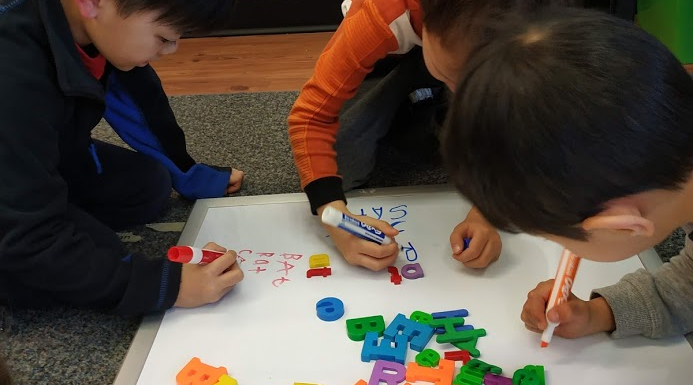Assessment and Reporting

Queen Alexandra is an early adopter of the Communicating Student Learning initiative, which draws upon assessment and reporting best practices to honour the way students think, learn and grow.
The major components of this initiative are described below:
1. A shift to primarily focusing on formative assessment.
These changes in communicating with parents are part of the redesigned BC Curriculum. Based on current assessment research, ongoing personal feedback, embedded in daily instruction, and examples of student work are used to support student learning than simply reporting on student results. The communication is based on clear standards and expectations and will make learning visible. Students will ask themselves: Where am I now? Where am I going? What do I need to do to get there?
2. Five required communications with parents within a school year, including:
- A minimum of three ongoing communications with parents throughout the school year at a time of the teacher’s discretion
- One written Progress Report at the end of January
- One written Summative Report at the end of June
Ongoing communication with parents will be based on authentic evidence of student learning from a variety of sources (examples of student work, photographs, audio, video, portfolios, conferences, parent-teacher meetings, reflections, telephone conversations, interim written reports etc). Each communication will:
- explicitly reference the learning standards (curricular competencies and content)
- include authentic evidence of learning
- provide descriptive feedback
- include student voice
- include all the curricular areas of English Language Arts, Mathematics, Science, Social Studies and the others as necessary
Written Progress Reports will indicate where the child is in relation to age/grade expectations and, in June, a student self-assessment of the Core Competencies (Communication, Thinking and Personal and Social). If applicable, a summary of the progress toward the goals in the child’s Individual Education Plan (IEP) will be included. Additionally, letter grades will be provided to parents on request.
All five communications with parents can include: descriptive information about the child’s learning, the learning goals the child is working towards, ways to further support the child’s learning at school and at home, the child’s contributions to the classroom, school and community, how the child interacts with others, the child’s ability to be personally aware and socially responsible, the child’s ability to engage in critical and creative thinking.
3. Student Self-Assessment of the Core Competencies (as part of the written summative report in June)
